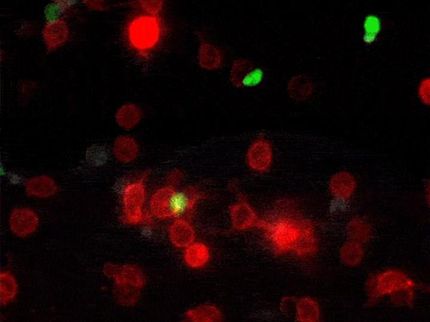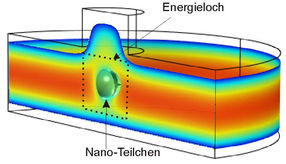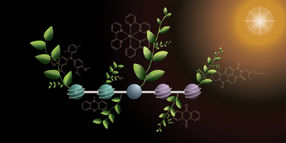Novel discovery in dendritic cell signalling pathways pave the way for new therapeutic targets
Advertisement
Scientists from A*STAR's Singapore immunology Network (SIgN) and the University of Milano-Bicocca, Italy, have discovered another signaling pathway for the activation and apoptosis, or programmed cell death, of dendritic cells.
Led by Prof Paola Castagnoli, Scientific Director of SIgN and Associate Prof Francesca Granucci of the University of Milano-Bicocca, the team discovered that the well-studied immune receptor called CD14 in dendritic cells could be independently activated by bacterial fragments called liposaccharides or LPS. Once activated, the CD14 would initiate the NFAT or nuclear factor of activated T-cells pathway, which would then activate the dendritic cells to trigger off the body's immune response. The scientists also discovered that the entire activation by CD14 was necessary to cause apoptosis.
Dendritic cells are the frontline sentinels in the body's defence mechanisms and they are potent inducers of an immune response against invading pathogens. Activated dendritic cells have a short life span, and scientists have observed that they undergo apoptosis in order to protect the body from the over-stimulation of the immune system, which could result in autoimmunity. This behaviour is supported by Prof Castagnoli and Associate Prof Granucci's findings.
"What is exciting is the link between CD14 activation and the NFAT pathway," explained Prof Castagnoli. "These findings have identified novel potential targets for the development of therapeutics against diseases that are involved with the CD14-NFAT pathway. For example, overexpression of CD14 has been associated with sepsis and chronic heart failure. New drugs that can modulate the CD14-NFAT pathway could provide treatments for such serious medical conditions."
Said Prof Philippe Kourilsky, Chairman of SIgN, "Prof Castagnoli has been contributing greatly to the area of dendritic cell regulation and this latest finding has contributed towards the growing body of knowledge on immunology. I am confident that the continued efforts by the team in SIgN and their partners in the University of Milano-Bicocca would spawn more innovative discoveries in the field of dendritic cell immunology."
The knowledge gleaned through the findings could also contribute to the creation of immunosuppressive agents that target NFAT activity. Currently, drugs such as cyclosporine A and FK506, which are widely used in organ transplantation, work by shutting off a protein called calcineurin, which is needed for triggering the immune response and activating the NFAT pathway. However, these drugs also cause adverse side effects such as kidney damage. Agents that interfere with NFAT specifically in lymphocytes but not in dendritic cells could potentially have yield immunosuppressive activity but with reduced side effects leading to prolonged graft survival.
Original publication: Ivan Zanoni, Renato Ostuni, Giusy Capuano, Maddalena Collini, Michele Caccia, Antonella Ellena Ronchi, Marcella Rocchetti, Francesca Mingozzi, Maria Foti, Giuseppe Chirico, Barbara Costa, Antonio Zaza, Paola Ricciardi-Castagnoli & Francesca Granucci; "CD14 regulates the dendritic cell life cycle after LPS exposure through NFAT activation"; Nature 2009.




























































